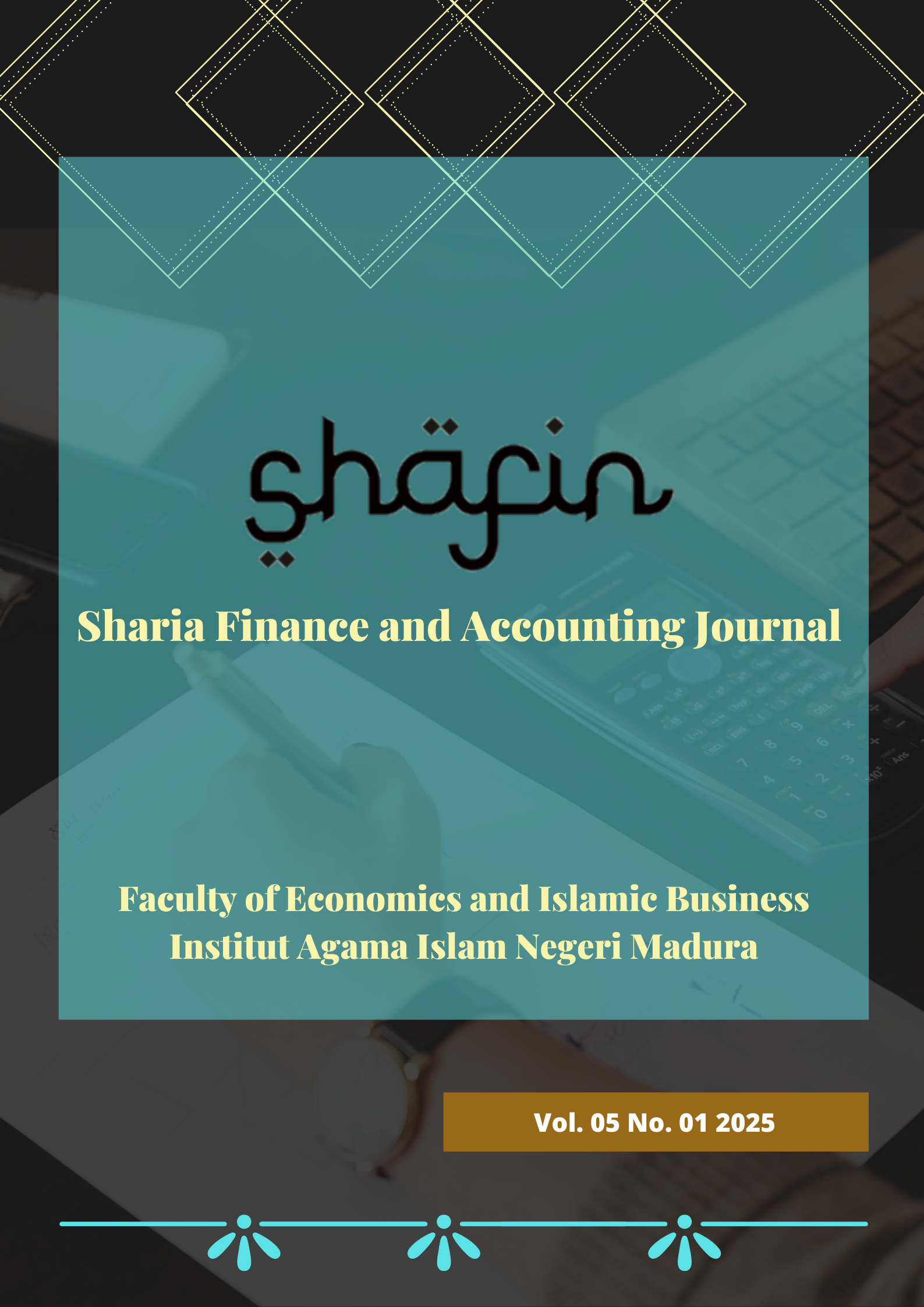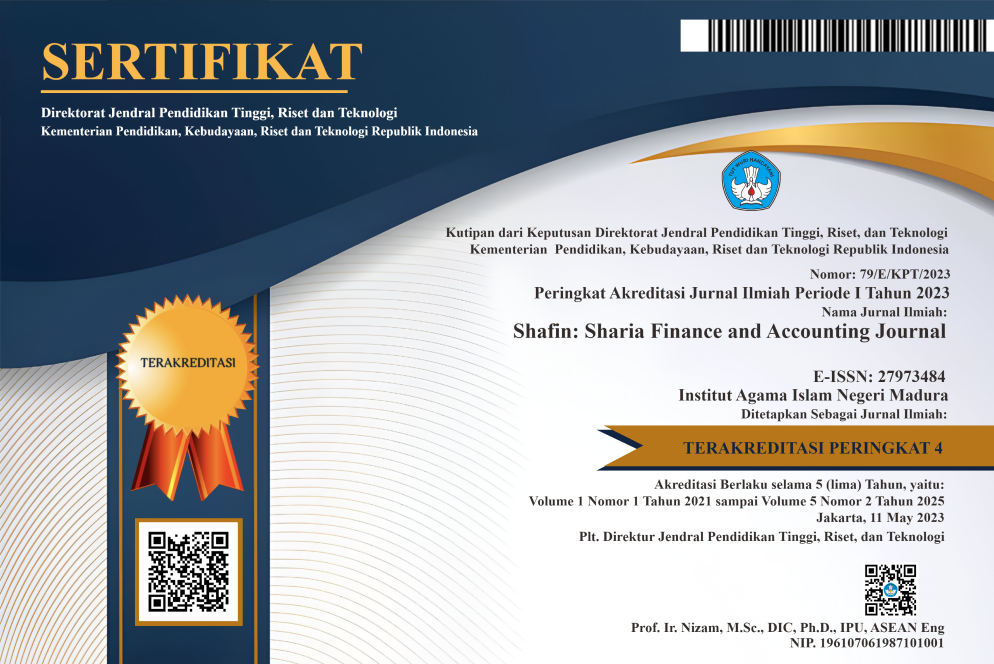Implementation of Green Accounting in Business Sustainability
 Abstract views: 79
,
Abstract views: 79
,
 pdf downloads: 44
pdf downloads: 44
Abstract
The purpose of this study is to ascertain how green accounting implementation affects the sustainability of businesses. The findings of earlier studies will be examined in order to examine this influence. The meta-analysis method is employed in this study. A meta analysis examines several research findings on related issues. Written research on the application of green accounting in business sustainability, in the form of journal articles selected for their alignment with the research theme, serves as the unit of analysis for this study. With the use of a documentation guide, the researcher is the primary tool in this study. Both quantitative data analysis using percentages and qualitative data analysis using narrative study data from the research findings were employed in the data analysis process. Sample errors were determined by calculating the findings of the meta-analysis. The variance of the population correlation is 0.569, while the sampling error variance is 0.023. A relatively modest percentage of variance, or 4%, is created by sampling error when the variance value of the sample error is compared to the population correlation variance value multiplied by 100%. This percentage shows that sampling error-related error bias is minimal.
Downloads
References
Gray, R. (2006). Does Sustainability Reporting Improve Corporate Behavior?: The Wrong Question? Right time? Accounting and Business Research, 36, 65–88.
Dewi, SR (2016). Understanding and Concern for the Implementation of Green Accounting: Case Study of UKM Tahu in Sidoarjo. National Seminar on Economics and Business, 497–511.http://eprints.umsida.ac.id/83/3/Santi_497-511 fix.pdf
Fakoya, M. (2014). An Adjusted Material Flow Cost Accounting Framework for Process Waste-Reduction Decisions in the South African(Issue 3).https://uir.unisa.ac.za/handle/10500/13942
Hardianti. (2017). The Role of Green Accounting in Efforts to Prevent Environmental Pollution to Support Business Sustainability (Study at PTPN Persero Takalar Sugar Factory). Alauddin Makassar State Islamic University.
Hernawati. A. (2018). The Effect of Green Accounting on Material Flow Cost Accounting in Improving Company Sustainability. In Alauddin Makassar State Islamic University.https://doi.org/10.4324/9781315561103-15
Lindawati, ASL, & Puspita, ME (2015). Corporate Social Responsibility: Implications of Stakeholders and Legitimacy Gap in Improving Company Performance. Journal of Multiparadigm Accounting, 6(4), 157– 174.https://doi.org/10.18202/jamal.2015.04.6013
Linnenluecke, M. K., & Griffiths, A. (2010). Corporate sustainability and organizational culture. Journal of World Business, 45(4), 357– 366.https://doi.org/10.1016/j.jwb.2009.08.006
Loen, M. (2018). Application of Green Accounting and Material Flow Cost Accounting (MFCA) towards Sustainable Development. Krisnadwipayana Accounting and Business Journal, 5(1), 1–14.
Marota, R. (2017). Green Concepts and Material Flow Cost Accounting Application for Company Sustainability. Indonesian Journal of Business and Entrepreneurship, 3(1), 43–51.https://doi.org/10.17358/ijbe.3.1.43
Nabila, R. and YN (2021). Green Accounting for Sustainable Development: Case Study of Indonesiaâ€TMS Manufacturing Sector. Online Journal of Bachelorwiyata University..., 5(1), 1–10. https://doi.org/10.26460/ad.v5i1.9147
Nur'Ainun, U., & Lestari, R. (2017). Environmental Accounting Disclosure and Financial Performance (Study of Textile Companies listed on the Indonesia Stock Exchange in. Professionalism of Accountants Towards Sustainable Business Practice, 7, 107– 116.http://digilib.mercubuana.ac.id/manager/
Republic of Indonesia Government Regulation No.47 of 2012. (nd). Regarding the Social and Environmental Responsibility of Limited Liability Companies.
Purnasiwi, J. (2011). Analysis of the Influence of Size, Profitability and Leverage on CSR Disclosures in Companies Listed on the Indonesian Stock Exchange. Journal of Chemical Information and Modeling, 53(9), 1689– 1699.https://repofeb.undip.ac.id/id/eprint/5901
Putri, NA (2022). The Influence of Green Accounting and Material Flow Cost Accounting on Company Sustainability. 135(30), 50–61.http://repo.darmajaya.ac.id/8081/
Rachmawati, W., & Karim, A. (2021). The Influence of Green Accounting on Business MFCA and Resource Efficiency as a Moderating Variable (Case Study of a Green Award Winning Company Listed on the Jakarta Islamic Index). Ubhara Management Scientific Journal, 3(April 2021), 33– 49.https://doi.org/http://dx.doi.org/10.31599/jmu.v3i1.811
Rosaline, VD, Wuryani, E., Ekonomi, F., Surabaya, UN, & Surabaya, K. (2020). The Effect of Implementing Green Accounting and Environmental Performance on Economic Performance. Journal of Accounting and Finance Research, 8(3), 569– 578.https://doi.org/10.17509/jrak.v8i3.26158
Selpiyanti, & Fakhroni, Z. (2020). The Influence of Implementing Green Accounting and Material Flow Cost Accounting on Sustainable Development. ASET (Accounting Research) Journal, 12(1), 109–116.https://doi.org/10.17509/jaset.v12i1.23281
PP 22 of 2021
PP RI No. 47 of 2012
Law no. 40 of 2007 concerning Limited Liability Companies article 74 paragraph (1)
The journal operates an Open Access policy under a Creative Commons Non-Commercial Share-Alike license. All articles published Open Access will be immediately and permanently free for everyone to read and download.
• Creative Commons Attribution-NonCommercial (CC-BY-NC)

Shafin: Finance and Sharia Accounting Journal by http://http://ejournal.iainmadura.ac.id/index.php/shafin is licensed under a Creative Commons Attribution-NonCommercial 4.0 International License.
Based on a work at http://ejournal.iainmadura.ac.id.















